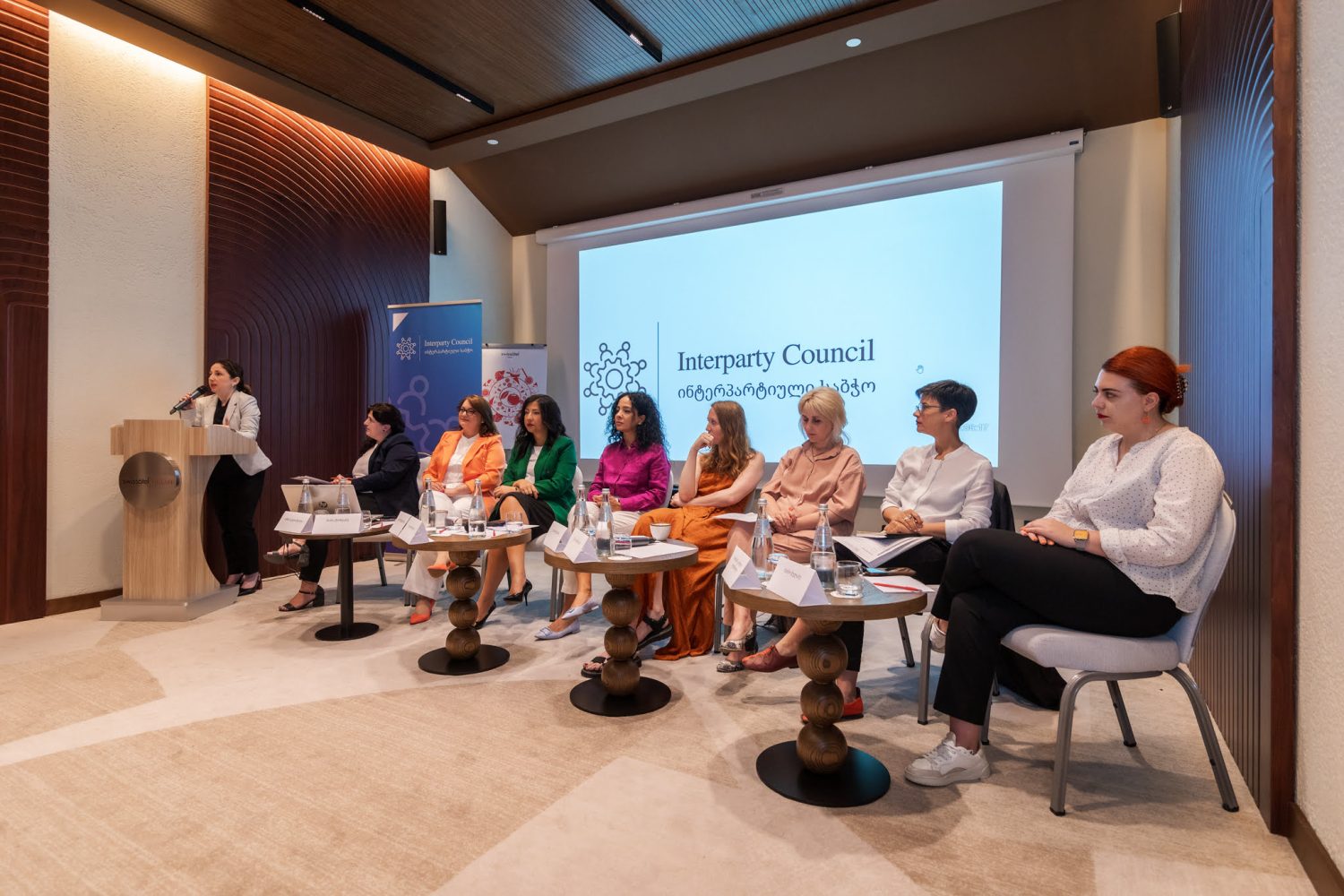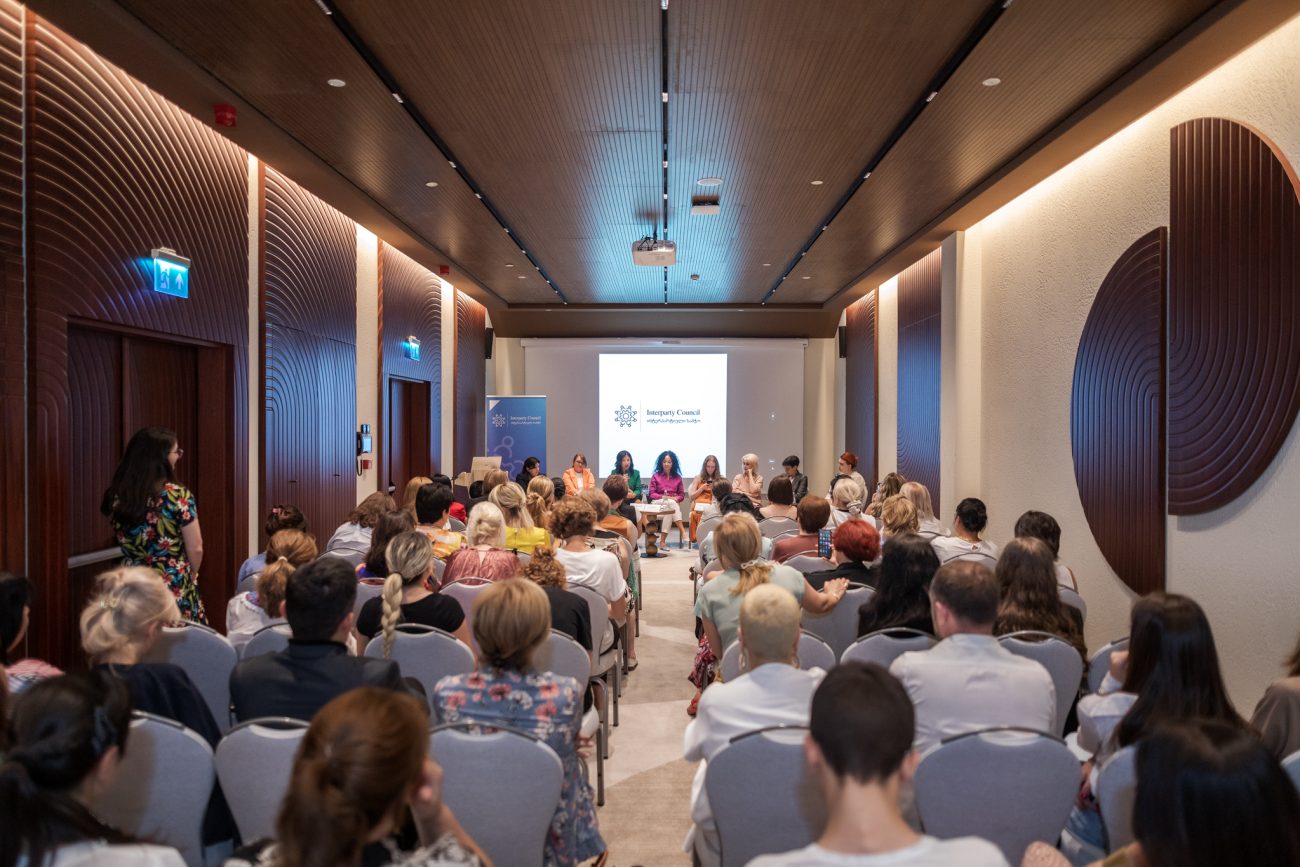On July 16, GIP facilitated a roundtable discussion with Interparty Council (IPC) – Women’s Committee members, assessing challenges for women politicians, and their role in the upcoming Parliamentary elections.
Women’s political participation in Georgia remains a challenge while their proper representation is crucial for democratic developments. On the other hand, women politicians face a series of barriers when it comes to seeing them in the leadership positions or decision-making bodies of the parties or state institutions. Annulling the gender quotas makes it challenging to ensure equal female representation in the 2024 parliamentary elections. Additionally, a tense political environment raises even more difficulties for women to represent their voters properly. Considering that more than 52% of the Georgian electorate are women, active engagement of women politicians is crucially important. The role of women politicians and their participation in electoral campaigns or, more generally, in formulating party visions is crucial if the needs of women voters are adequately reflected in party platforms and strategies.
The roundtable discussion was dedicated to the barriers women politicians face during their political activism. Teona Chalidze, Secretary General of the Women’s Committee of the Interparty Council, delivered welcoming remarks. CRRC findings on public opinion about women’s political engagement were presented by CRRC researcher Salome Dolidze. The following debate was based on the Interparty Manifesto “Challenges Faced by Women Voters and Politicians: How Do Political Parties Respond to Their Expectations?”, prepared by the Women’s Committee of the Interparty Council (IPC) as a result of regional field works in 2023. The panel, moderated by Irma Pavliashvili, Head of Caucasus Open Space, included IPC members and party representatives: Tata Khvedeliani (For Georgia), Ana Gogoladze (Ahali), Barbara Gimelli Sulashvili (United National Movement), Maia Akhalkatsi (Lelo), Nana Tokhvadze (Strategy Aghmashenebeli), Ana Chikovani (Girchi More Freedom) and Nino Tsuladze (Ana Dolidze for People). Women politicians from seven different political parties discussed the challenges for women in politics, the needs of women voters, and ways to better address them by political parties.



